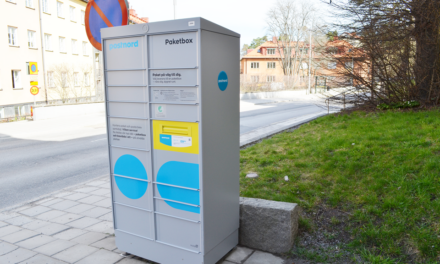
More Mail, Fewer Airlines
The U.S. Postal Service is tossing out the decades-old contract it has with the passenger airlines to carry mail and coming up with a whole new way of doling out mail volume. Gone will be the familiar but worn ASYS (air system) and ASYS-R (air system-regional) contracts that have governed the financial relationship between the passenger airlines and their top cargo customer for the last few decades. The contracts still are in effect but the goal is to have new contractual language in place by May when the extension on the 2001 contracts expires.
While security restrictions prevent airlines from carrying mail over 16 ounces (although pilot programs using bomb-sniffing dogs are in the works to possibly change that – starting in over-water markets like San Juan, P.R., Alaska, Hawaii and the Caribbean), the airlines still carry a tremendous amount of mail, more than $1 billion worth last year. But that total is on the decline (airlines have lost more than $400 million from the 16-oz. ban) and will drop precipitously again this year in the post-Sept. 11 security environment. Still, the revenue is critical to the passenger airlines. The airlines approached USPS this spring urging the agency to come up with a new system to allocate mail volume to reward those carriers that have made the investments required to move the mail. "The ASYS and ASYS-R contracts have been around a long time. It is not the right way to do business with these carriers," said Paul Vogel, vice president of network operations for USPS. USPS hopes to strip away a lot of the bureaucracy of the ASYS contract and make decisions on which carriers should get the mail based on performance and network investment. Gone will be the equal-tender relationship clause that has mandated the Postal Service give an equal amount of mail to competing airlines serving the same city pairs. "We've been talking with the (Air Transport Association) and the carriers about how to improve performance. … We have strong data sets that tell us what our problems are," he said. "It is showing us we are getting better service from the cargo carriers." Once USPS is out from under the ASYS contract, it can begin to impose incentive plans to ensure that airlines deliver the mail as promised and, conversely, that the Postal Service keeps up its end of the bargain, similar to incentive plans it has with FedEx. Because mail volume has dropped, airlines are hauling less mail but with the same level of fixed costs. The plan is to reduce the number of carriers, giving fewer airlines a higher percentage of mail volume. "We have too many carriers. The airlines are telling us to weed out the carriers that aren't performing and give the volume to those that can be more efficient," said Vogel. "We are hoping for better service and better economy of scale." A lot of work has to be done yet to determine, after factoring in security rules and the FedEx contract, how much lift is needed, which airlines will win the volume and at what price. The major airlines are cautiously optimistic that abandoning the one-size-fits-all contract and moving to a competitive bid process will "benefit both parties by producing improved mail service quality of more controlled tender volumes at reasonable cost to the Postal Service," said Mark Gilbert, manager of postal affairs for American Airlines Cargo. "The U.S. Postal Service has stated and American fully expects that the total number of carriers ultimately awarded postal contracts in this new environment will be noticeably reduced." Not all airlines are embracing the change. A group of regional airlines have banded together and sought the support of members of Congress to stop USPS from ending its air transportation contract with the regional carriers in May as planned. Save American Airmail, a coalition of eight regional carriers and three trade associations, was formed this month to lobby Congress against what the group feels will erode mail delivery for rural customers. The regional airlines are bemoaning the USPS decision to end the decade-long ASYS-R, calling the decision arbitrary and an attempt to "balance the budget on the backs of rural America." The elimination of mail could spell the elimination of routes and even airlines for several of the more than 100 regional carriers that are signatories to the ASYS-R contract. "We urge the U.S. Postal Service to reconsider its plans to eliminate the ASYS-R contract," said nine members of Congress from mostly rural districts in a letter to USPS's Vogel. "We feel strongly that this proposal is unjust and would severely and negatively affect our constituents – America's rural communities." USPS argues that most of the regional mail already has shifted to the ground and service hasn't suffered as a result. The cost of using a truck to carry mail is about 10 cents per pound versus about 65 cents per pound on the regional airlines. "There is a whole lot of misinterpretation going on," said Vogel. "They've formed this group under this warm and fuzzy name, but the issue is money. How can we provide the best service and continue universal service? We are never going to violate universal service." USPS already has truck service to all points in the country less than 500 miles apart, going to all the places the regional carriers fly, he said. "The question is why do we need ASYS-R? Their answer is we've got all these mountains in the way, but trucks on average are more reliable," he said. "It doesn't mean that there aren't going to be lanes where we'll need air transportation, but the ASYS and ASYS-R no longer serve our needs. We need to think of new ways to do business." "We don't make that much money on mail but in this environment all revenue is important," said Deborah McElroy, president of the Regional Airline Association. The ASYS-R contract costs USPS about $25 million annually out of a $1.3 billion air transportation budget. "We just want to talk to the Postal Service. They say they have this study showing trucking is less expensive but we haven't seen the numbers. We'd like a chance to compete," she said. "We believe we provide better service, more timely service. Let's renegotiate the contract – don't throw the baby out with the bath water."













